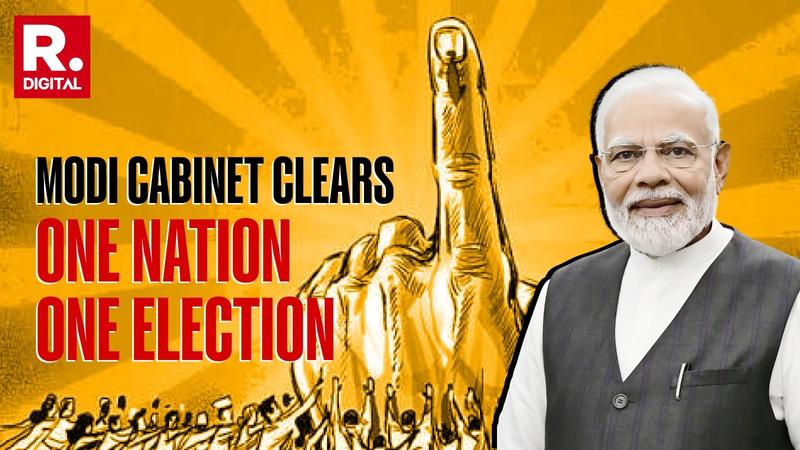Published 18:34 IST, December 12th 2024
One Nation, One Election: Why It Was The Need Of The Hour | Explained
The Union Cabinet on Thursday cleared the much-anticipated 'One Nation, One Election' (ONOE) bill.

New Delhi: The Union Cabinet on Thursday cleared the much-anticipated 'One Nation, One Election' (ONOE) bill. The decision, made during a Cabinet meeting chaired by Prime Minister Narendra Modi . Sources indicate that the bill could be tabled during the ongoing Winter Session, marking a major step towards implementing simultaneous elections for both the Lok Sabha and state assemblies.
With elections held separately for the central and state governments, the country faces multiple rounds of elections each year, consuming significant resources and time.
Why 'One Nation, One Election' Is the Need of the Hour
1. Financial Savings
The current system of separate elections for the Lok Sabha and state assemblies imposes a heavy financial burden on the government and political parties. Multiple election campaigns require extensive funding for advertisements, rallies, and logistics, often leading to the diversion of resources. By holding elections simultaneously, ONOE promises significant savings. The consolidation of election events will reduce campaign-related expenditures, saving the public exchequer and political parties substantial amounts of money.
2. Logistical Efficiency
Frequent elections demand large-scale mobilization of poll officials, security personnel, and election infrastructure. Holding separate elections multiple times a year leads to repeated logistical challenges. With ONOE, these resources can be utilized more efficiently, as the election machinery will be deployed just once. This would reduce the burden on the Election Commission of India (EC) and ensure a smoother election process.
3. Continuity in Governance
One of the major drawbacks of the current electoral system is the frequent interruptions to governance. As elections approach, government officials and politicians are often diverted to election duties, leaving ongoing projects and policies in limbo. These disruptions hinder policy implementation and can delay crucial development initiatives. By reducing the frequency of elections, ONOE ensures greater stability in governance, allowing for more effective policy execution and the continuity of development projects.
4. Reduction in Political Corruption
The need for extensive fundraising during frequent elections can create opportunities for corruption. Political parties raise significant amounts of money for each election cycle, which can lead to unethical practices. With fewer elections, ONOE reduces the financial pressures on political parties, decreasing the likelihood of corruption related to election funding.
5. Cost Savings for the Election Commission
The Election Commission incurs significant costs in conducting elections, including setting up polling stations, recruiting staff, and ensuring security. Holding elections simultaneously across the country will reduce these recurring expenses. Although the Election Commission would need to invest in infrastructure to support synchronized elections, the long-term financial benefits are expected to far outweigh the initial costs.
Get Current Updates on India News, Entertainment News along with Latest News and Top Headlines from India and around the world.
Updated 18:53 IST, December 12th 2024




